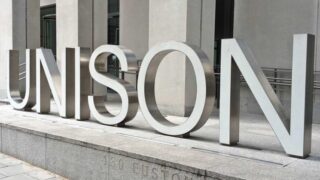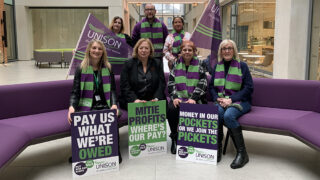We should be immensely proud of how quickly the NHS has rolled out the COVID-19 vaccination programme. However, other countries in Europe are experiencing delays due to shortages of supplies.
And many countries in the global South will have to wait until late 2021 or even 2022 before they can start vaccinations, because they were unable to compete with wealthier countries in the global race to buy vaccines.
World Trade Organisation (WTO) rules allow for the intellectual property rights of pharmaceutical companies to be waived in circumstances such as this pandemic. This would allow vaccine production to be ramped up and would significantly reduce the cost.
At the end of last year, India and South Africa called on the WTO to agree such a waiver. They have been joined by a range of African and Asian countries, the World Health Organisation, United Nations agencies and our global union, Public Services International.
Unfortunately, the waiver is being opposed by a coalition of countries including the UK, the USA and the European Union.
They argue that pharmaceutical companies will only innovate new products if they are able to profit from their development.
But that ignores the large amounts of public money invested in pharmaceutical research by governments and public bodies such as universities, and this is especially true when it comes to the COVID-19 vaccinations.
That’s why I’ve written to international trade secretary Liz Truss and health secretary Matt Hancock, calling on them to end their opposition to the waiver on intellectual property rights of COVID-19 vaccines.
There is a moral case to be made for everyone to be able to have access to a vaccine. But there is also a public health case: this is a truly global pandemic and it is in everyone’s interest to get as many people vaccinated, as quickly as possible, before even more new variants of the virus emerge.
That’s why I hope the UK will agree to support the waiver.





